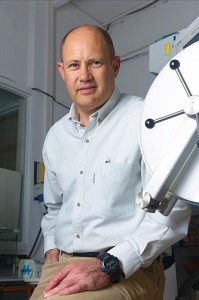$5 Million for Grand Technion Energy Program
 The Leona M. and Harry B Helmsley Charitable Trust has given a $5 million grant to the Technion’s energy program.
The Leona M. and Harry B Helmsley Charitable Trust has given a $5 million grant to the Technion’s energy program.
The grant was attained through the American Technion Society (ATS) and the Grand Technion Energy Program (GTEP) and will be used for setting up the Helmsley Charitable Trust Energy Storage Complex and for supporting the “Leaders in Energy Science” program.
“The Helmsley Charitable Trust is proud to be associated with the Technion in this important project,” said Sandor Frankel, trustee of the Trust.
The Technion energy program aims to attract new and talented faculty members in the field of energy. The “Leaders in Energy Science” program will pay the salaries of and finance equipment for two new researchers for three years. Through a package of competitive research grants and excellent research infrastructure, the Technion can bring home talented potential faculty members that are currently working or studying abroad. “This is one of the main goals of the energy program, and we plan to recruit six new faculty members in the next six years,” said GTEP head Prof. Gideon Grader.
In light of the rapid dwindling of low-cost hydrocarbon energy sources and the need to reduce greenhouse gas emissions, the development of clean energy is more pressing than ever. “The Helmsley Charitable Trust grant arrives just at the right time,” said Prof. Grader. “Part of the grant will be used to set up a laboratory complex at the Technion that will deal with the development and study of energy rich batteries. The Energy Storage Complex to be established at the Faculty of Materials Engineering will consist of three separate labs. In light of great interest in silicon-air batteries – a new battery developed by Prof. Yair Ein-Eli of the Faculty of Materials Engineering and the GTEP – there is a real and urgent need for further research and to develop the battery for commercial production.”
The battery is based on a reaction between silicon and atmospheric oxygen and promises significant environmental advantages due to its tiny size, long shelf life and, most important of all, a clean return of the silicon to its original state – sand. This research has future ramifications for the fields of transportation, health and electronics.
Technion researchers believe that within a year or two they will succeed in significantly increasing battery power. “We are trying to create a battery that will last months before it has to be replaced,” said Prof. Ein-Eli. “The dream is that they will also be rechargeable. We are in a race towards the battery of the future – will this be a metal-air battery of the lithium-air kind or aluminum-air or a silicon-air battery? I believe that silicon has significant advantages with respect to environment, cost and safety.”
Above: Prof. Gideon Grader


